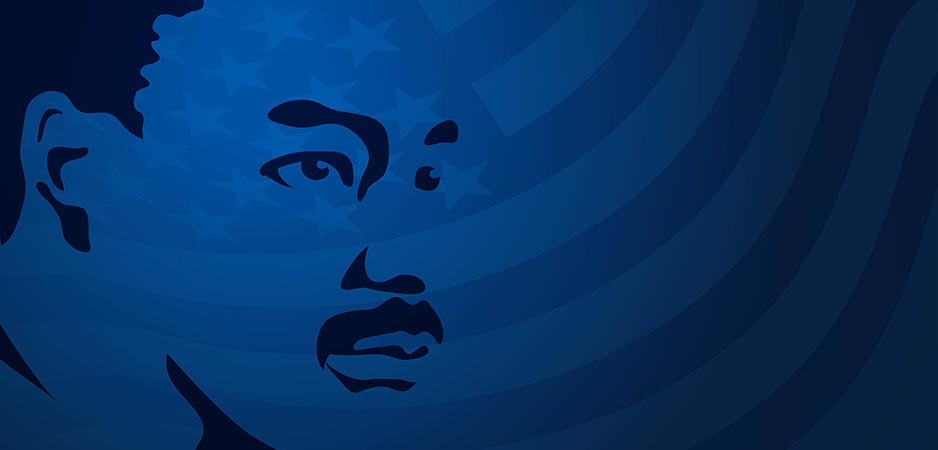As we once again remember Martin Luther King (MLK), we pause and reflect on what he would make of a world that appears to be retreating back to the isolationism and racism that was common in the time he lived. Cut short in his prime, King’s legacy must be discussed with “what if” scenarios. This is especially in light of his famous “I Have a Dream” speech in 1963 on the steps of the Lincoln Memorial in Washington, DC.
King’s speech is recognized as one of the greatest of perhaps the last two centuries. It is a credit to the oratory charisma of the man that whilst this was not the speech that was originally prepared, it would turn out to be the one that sent him into the annals of history.
Yet the tragedy of the speech is that decades later, it is still relevant for a world that MLK did not live to see. Whether or not the US has lived up to the dream of Dr. King or if we have learned from history is up for debate. Apart from a few sound bites, do we actually remember what Dr. King’s dream was? In particular, what significance do those of us non-Americans attribute to the speech especially in the current day and age? What would King say if he was alive today and saw the numerous injustices taking place around the world? As a man of faith, how would he hold accountable those people of faith in what they are or are not doing?
Injustice and Nonviolence
My reflection is that the significance of his speech is in remembering the actions of the man who stood against injustice — even though this eventually cost him popularity and perhaps condemned him to the obscurity he didn’t deserve — be it the Vietnam War or even the Poor People’s Campaign. King’s speech is a prophetic manifesto against injustice that calls out for a spiritual response through nonviolence. I have been thinking about this concept recently in light of what is happening worldwide as we see the globalization of fragility.
King’s speech has to be heard, read and understood in light of nonviolence beyond the idealistic notion that we have of the Gandhian act of an old man resisting violence. Rather, we should look at the words of Dr. King as an act of moral resistance that brings to the forefront the fight against poverty, humiliation and underdevelopment.
Successful nonviolent efforts require great strength of character, perseverance and discipline. Nonviolence is a means of awakening a sense of injustice and moral shame in the supporters of a power structure, showing them that they have more to gain by ending injustice and oppression than by maintaining the status quo.
Ultimately, nonviolence is about communicating a moral priority. No one communicated this more than King who, despite losing his supporter base, would shift attention from the civil rights movement to economic injustice and the Vietnam War in 1965, which have been erased from the cultural narrative of his life and legacy.
Where We Stand
MLK used this as an invocation of moral shame that would damage or diminish American injustice. In his 1963 letter from a Birmingham jail, he drew inspiration from the gospel and biblical teachings in order to justify his fight against injustice.
As he wrote, “Injustice anywhere is a threat to justice everywhere.” MLK mentioned just and unjust law and offered insight into how not only the church but also other faith leaders and communities should act in the face of injustice. For King, they had to be a “thermostat” that transformed the mores of society. In his own words: “If the church of today does not recapture the sacrificial spirit of the early church, it will lose its authentic ring, forfeit the loyalty of millions, and be dismissed as an irrelevant social club with no meaning.”
This is the challenge that MLK sets for us today — people of faith and no faith — to see where we stand during challenging times. Will we rise above the narrow confines of our individualistic concerns to the broader issues facing all of humanity? This is why the dream is still alive and needs to be kept alive to ensure that Martin Luther King’s vision is not confined to the annals of a whitewashed history.
The views expressed in this article are the author’s own and do not necessarily reflect Fair Observer’s editorial policy.
Support Fair Observer
We rely on your support for our independence, diversity and quality.
For more than 10 years, Fair Observer has been free, fair and independent. No billionaire owns us, no advertisers control us. We are a reader-supported nonprofit. Unlike many other publications, we keep our content free for readers regardless of where they live or whether they can afford to pay. We have no paywalls and no ads.
In the post-truth era of fake news, echo chambers and filter bubbles, we publish a plurality of perspectives from around the world. Anyone can publish with us, but everyone goes through a rigorous editorial process. So, you get fact-checked, well-reasoned content instead of noise.
We publish 2,500+ voices from 90+ countries. We also conduct education and training programs
on subjects ranging from digital media and journalism to writing and critical thinking. This
doesn’t come cheap. Servers, editors, trainers and web developers cost
money.
Please consider supporting us on a regular basis as a recurring donor or a
sustaining member.
Will you support FO’s journalism?
We rely on your support for our independence, diversity and quality.






